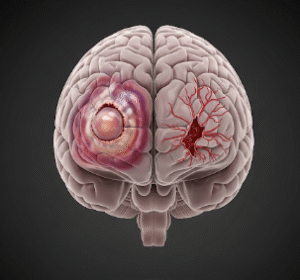Overview
Illness Anxiety Disorder (IAD), previously known as hypochondriasis, is a mental health condition characterized by excessive worry and fear about having or developing a serious illness despite having little or no medical evidence to support this concern. Individuals with IAD often misinterpret normal bodily sensations or minor symptoms as signs of severe disease, leading to persistent anxiety and distress. In Korea, mental health clinics and psychiatric departments provide specialized counseling, cognitive behavioral therapy (CBT), and medication management to help patients overcome these fears and improve their quality of life.
What is Illness Anxiety Disorder?
Illness Anxiety Disorder is classified under somatic symptom and related disorders in the DSM-5. Unlike somatic symptom disorder, where physical symptoms are prominent, IAD is marked by preoccupation with health concerns rather than actual symptoms. Patients frequently seek medical reassurance but remain anxious, often leading to excessive medical visits and tests.
Symptoms
- Persistent worry about having or developing a serious illness
- Frequent self-examination or health-related checking behaviors
- Avoidance of doctors or medical tests due to fear of bad news
- Misinterpretation of normal bodily sensations as signs of disease
- Anxiety and distress interfering with daily functioning
- Repeated medical visits without relief from worry
Causes
- Psychological factors such as heightened sensitivity to bodily sensations
- Past experiences with serious illness in self or family
- Personality traits like perfectionism or high anxiety
- Stressful life events triggering health concerns
Risk Factors
- Family history of anxiety or somatic disorders
- Personal history of serious illness or trauma
- High health-related anxiety or catastrophic thinking
- Exposure to excessive health information or misinformation
Complications
- Impaired social and occupational functioning
- Excessive medical testing and healthcare costs
- Development of depression or other anxiety disorders
- Strained relationships due to constant health concerns
Prevention
- Early psychological intervention when health anxiety develops
- Education on normal bodily sensations and health risks
- Stress management and coping skills development
- Limiting excessive health-related internet searching
Treatment Options in Korea
Diagnosis
- Comprehensive psychiatric evaluation including patient history and symptom assessment
- Screening tools like the Health Anxiety Inventory (HAI)
- Ruling out actual medical conditions through collaboration with physicians
Medical Treatments
- Cognitive Behavioral Therapy (CBT) – Focuses on restructuring maladaptive thoughts and reducing health anxiety
- Selective Serotonin Reuptake Inhibitors (SSRIs) – To manage underlying anxiety and depressive symptoms
- Psychoeducation and supportive counseling
Surgical or Advanced Therapies
- Not applicable for IAD
Rehabilitation and Support
- Stress reduction techniques such as mindfulness and relaxation training
- Family therapy to support patient and reduce conflicts
- Ongoing psychiatric follow-up to monitor symptoms and medication
Top Hospitals or Clinics in Korea
- Seoul National University Hospital – Department of Psychiatry
- Samsung Medical Center – Mental Health Clinic
- Asan Medical Center – Psychiatric Services
- Yonsei Severance Hospital – Behavioral Medicine Division













